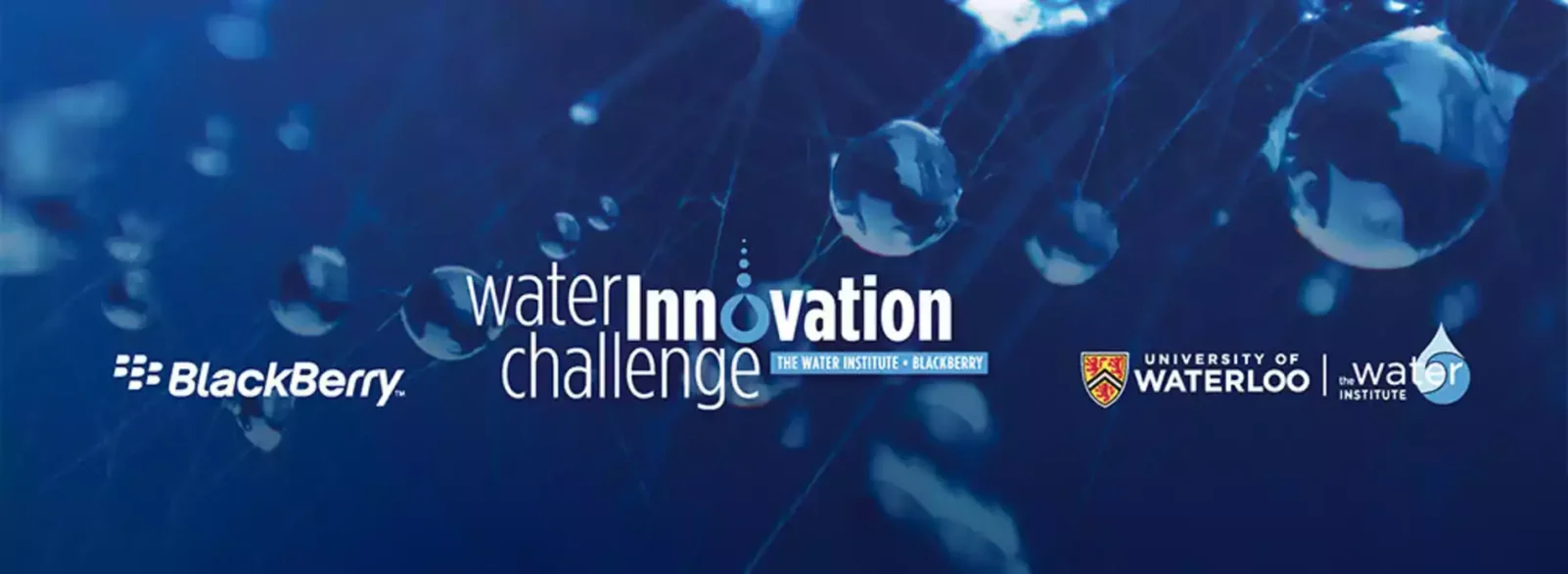BlackBerry and the University of Waterloo’s Water Institute, one of the world’s top water research institutes, have launched a first-of-its-kind innovation research challenge for professors and students.
The Water Innovation Challenge invites new applications of BlackBerry technologies to address water-related challenges, including the cybersecurity of water systems, water emergencies, and Internet of Things (IoT) water management solutions.
In support of a mutual commitment to help ensure the availability and sustainable management of water, the Water Innovation Challenge will catalyse new research and technological innovation that advances the sustainability and water related United Nations Sustainable Development Goals (SDGs).
Water resilience is critical for economic development, climate change, and healthy ecosystems.
“BlackBerry was founded with an agenda of addressing some of the world’s most critical needs, specifically cybersecurity and connectivity. We are purposefully delivering innovations and partnerships which leverage our technologies to address these most pressing issues facing communities and industries around the world,” said Neelam Sandhu, Senior Vice President and Chief Elite Customer Success Officer, BlackBerry.
“We are delighted to expand our partnership with the University of Waterloo to help tackle water security.”
Areas of interest
The research and development areas of particular interest to BlackBerry are described below. Principal investigators should review BlackBerry’s suite of products, solutions and services in exploring potential applications or services in these areas. Investigators are strongly encouraged to attend the Information Session to learn more about BlackBerry technologies and these priority areas.
Investigators with ideas in areas that are not listed, but that might see potential for using a BlackBerry technology or service to address a water-related issue or opportunity, are strongly encouraged to consider submitting a proposal.
Proposers are advised that BlackBerry is primarily a software and services company, and so generally it will be difficult to find mutual interest in research primarily focused on hardware.
Internet of Things (IoT) and Water
- Development of “smart water”-related IoT applications or services for governments, utilities, companies, households and researchers that could recognize patterns in watershed data, predict events and optimize systems monitoring flow, water quality, water usage, pressures, leakages, and more.
- Development of “Smart” water IoT solutions that intelligently automate instruments, tools and processes to improve efficiency, reduce water use and improve water quality.
Cybersecurity and Water
- Development of applications or services that improve the security of critical infrastructure, such as water supply and wastewater systems, enterprise, utility or process control systems. Solutions could prevent technical or process breaches, compromised internal systems or theft of customer data. Ensuring the security of control system devices, equipment and networks in critical water systems.
Emergency Events and Water
- Development of applications or services that apply BlackBerry AtHoc in the water domain. Solutions for critical event management with governments, emergency service providers and educational institutes to help make and communicate informed decisions in crisis situations including heatwaves, droughts, wildfires and flooding exacerbated by climate change.
Greener Technology for Wastewater Treatment
- Development of ideas for applications or services that leverage BlackBerry software to enable the application of green technologies in water or wastewater treatment. Green wastewater technologies use alternative, “green” systems, materials or processes to achieve treatment objectives with less impact, including energy use. Examples include the use of natural, biological or anaerobic systems, or systems and processes that recover reusable products such as water, energy or nutrients.
Other Research Areas
- Investigators with ideas in areas not listed above, but that might use BlackBerry technology or services to address a water-related issue or opportunity, are encouraged to submit a proposal.
“The Water Institute at the University of Waterloo is thrilled to be partnering with BlackBerry to catalyse technological innovation to advance progress against the United Nations Sustainable Development Goals,” said Roy Brouwer, Water Institute Executive Director, Professor in the Department of Economics.
“The Water Innovation Challenge will connect our researchers to BlackBerry technologies in new ways to address the most urgent global challenges of today”.
The window to submit applications will be open from January 10 to February 24, 2022. Chosen applicants will commence their research for the Spring 2022 academic term.
All researchers and students from the University of Waterloo with interest in collaborating in the challenge are invited to attend the jointly hosted info session on January 27, 2022 and learn more about the proposal process.
Information Session Agenda:
- Water Innovation Challenge introduction
- Water Innovation Challenge process
- Research areas of interest
- Question/answer period
Date: January 27, 2022
Time: 12:30 p.m. – 2:00 p.m.



